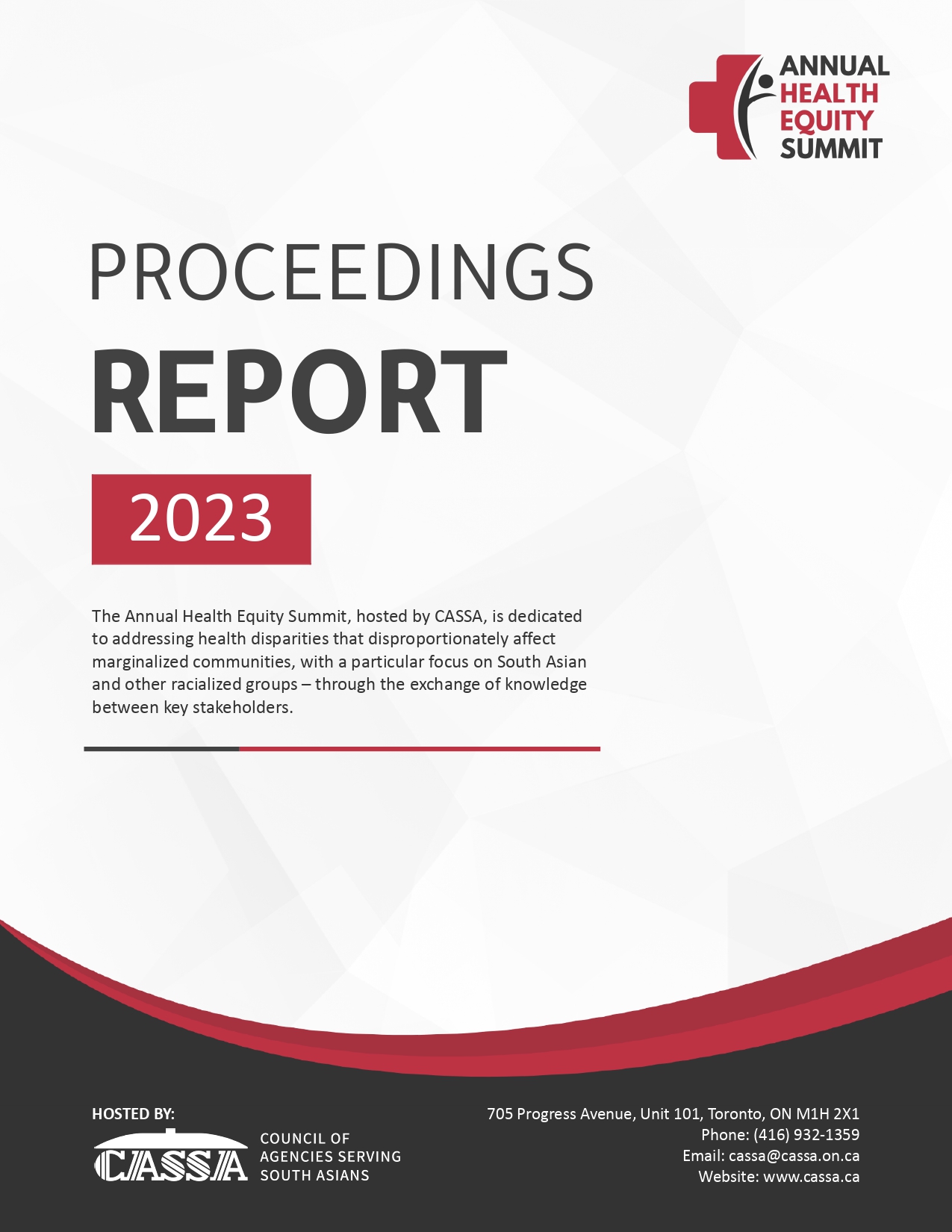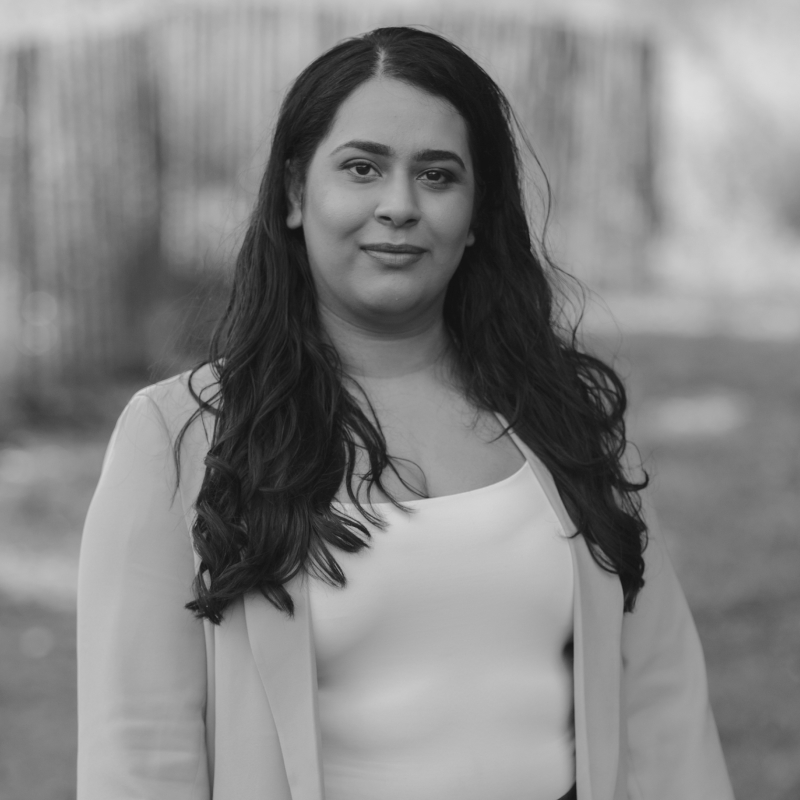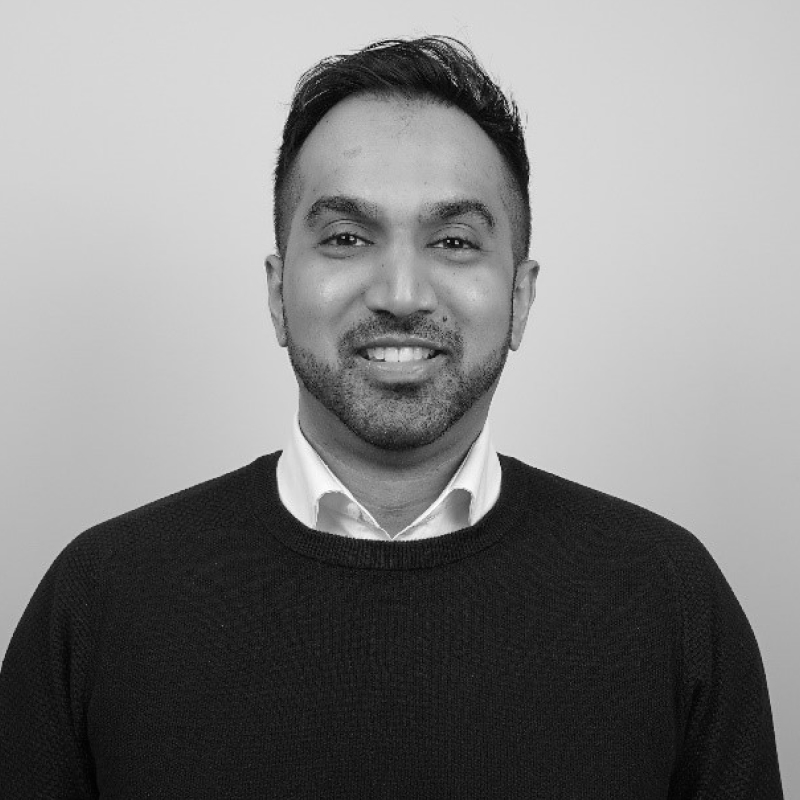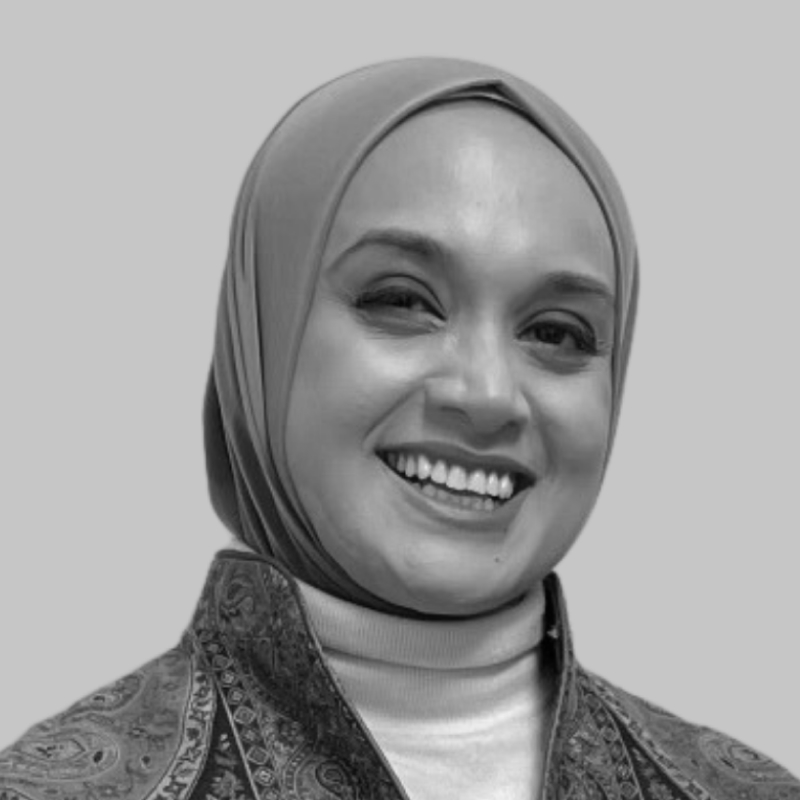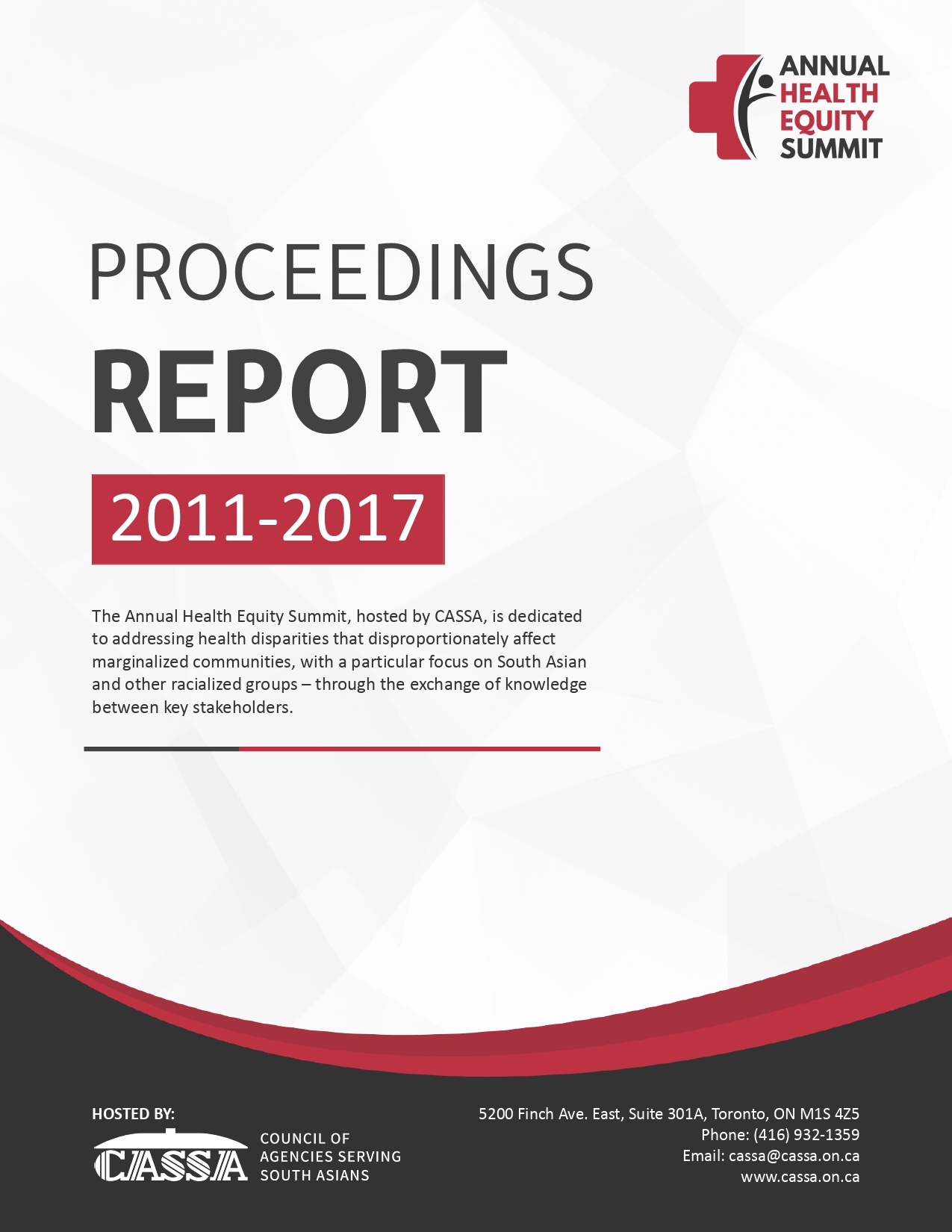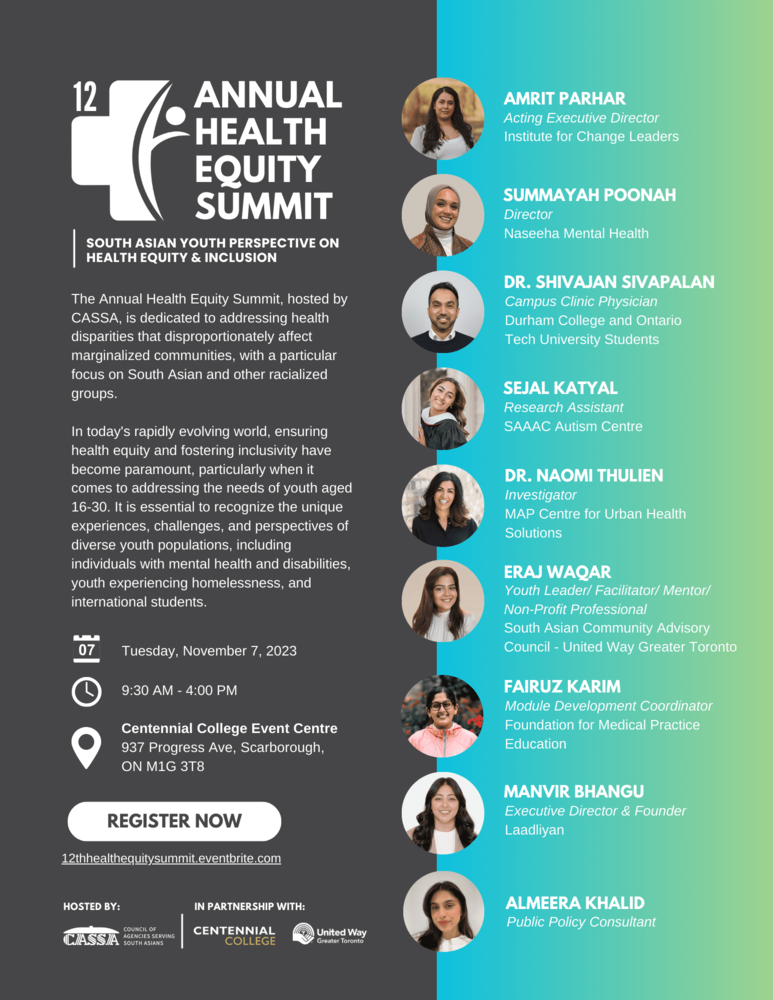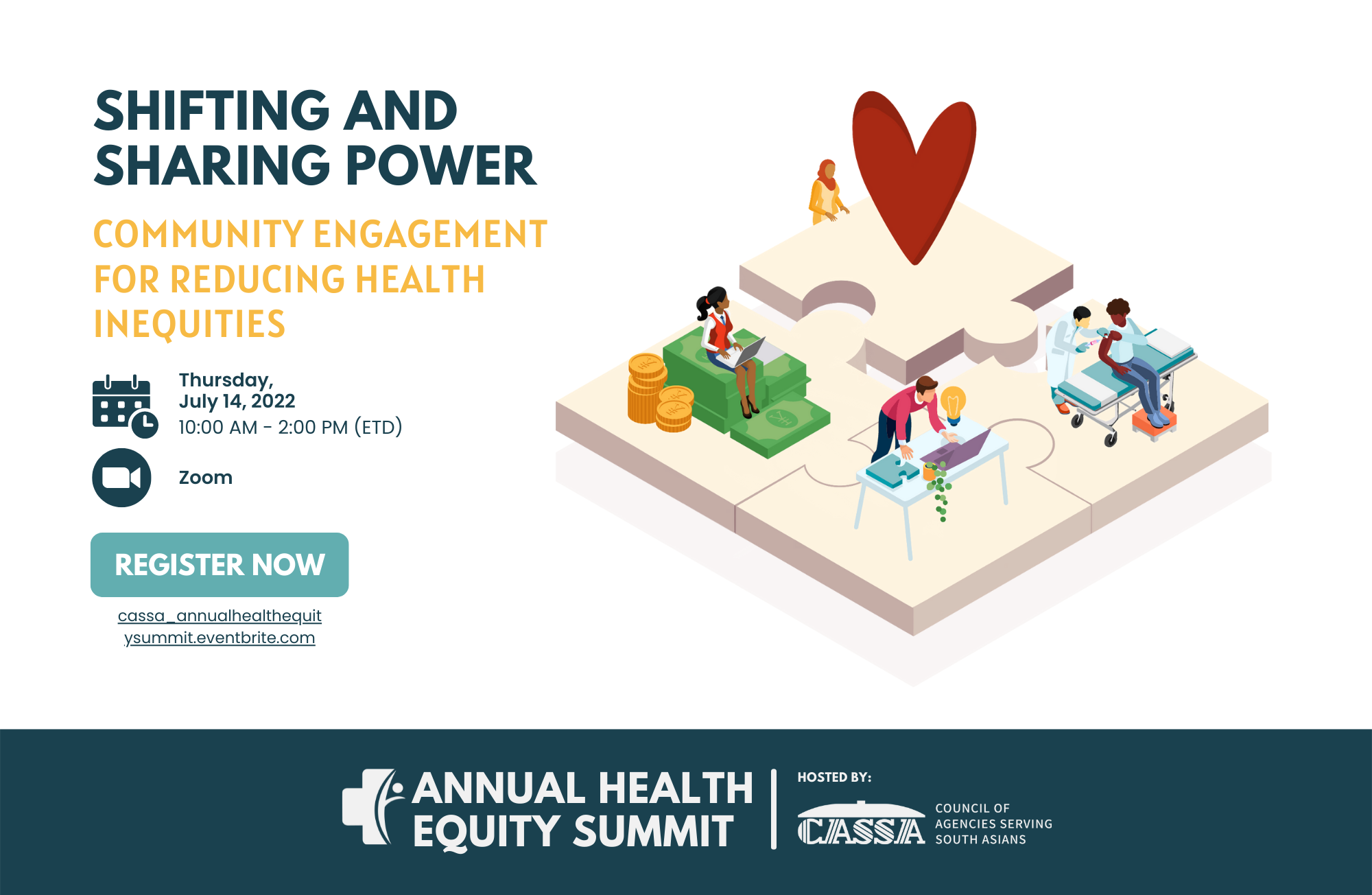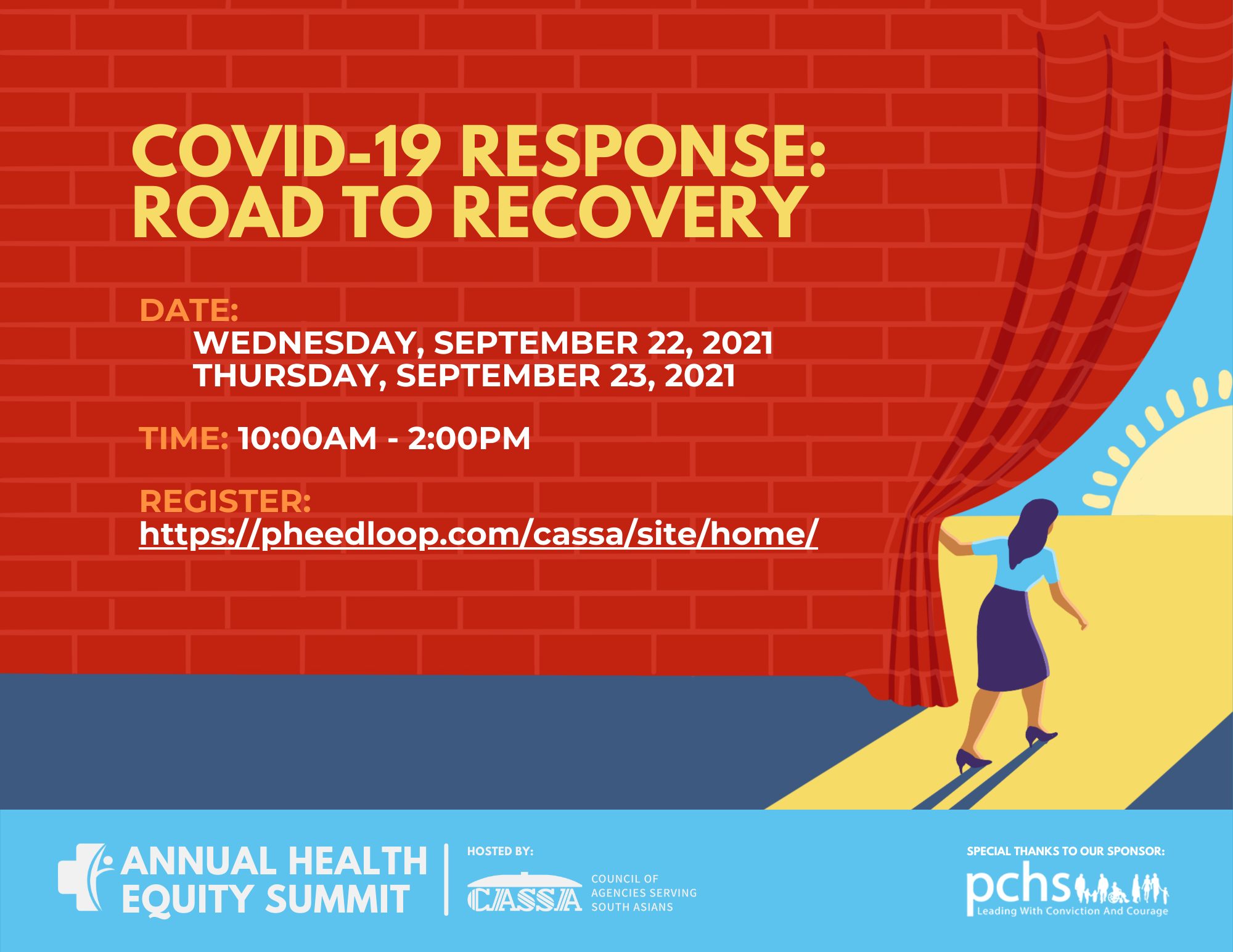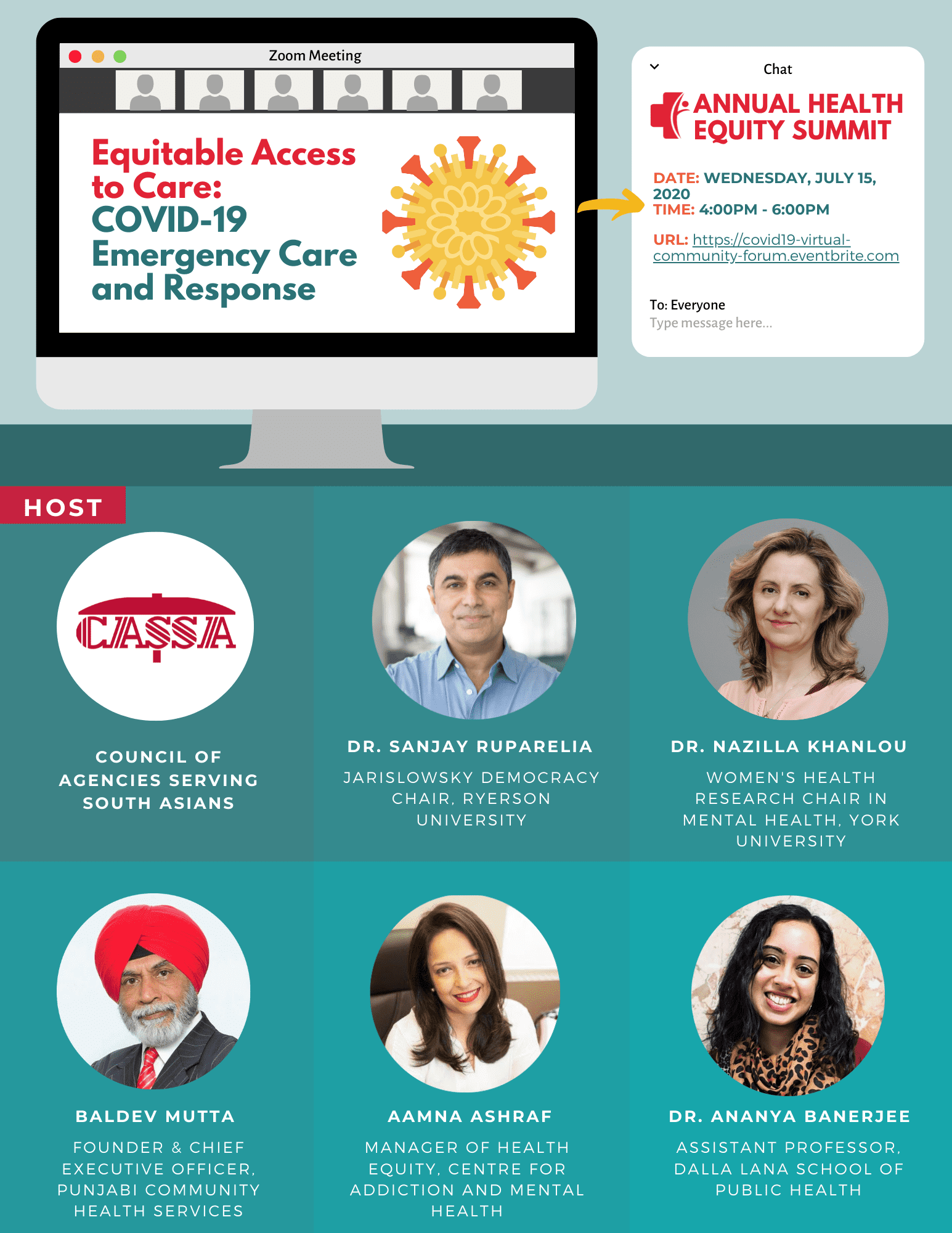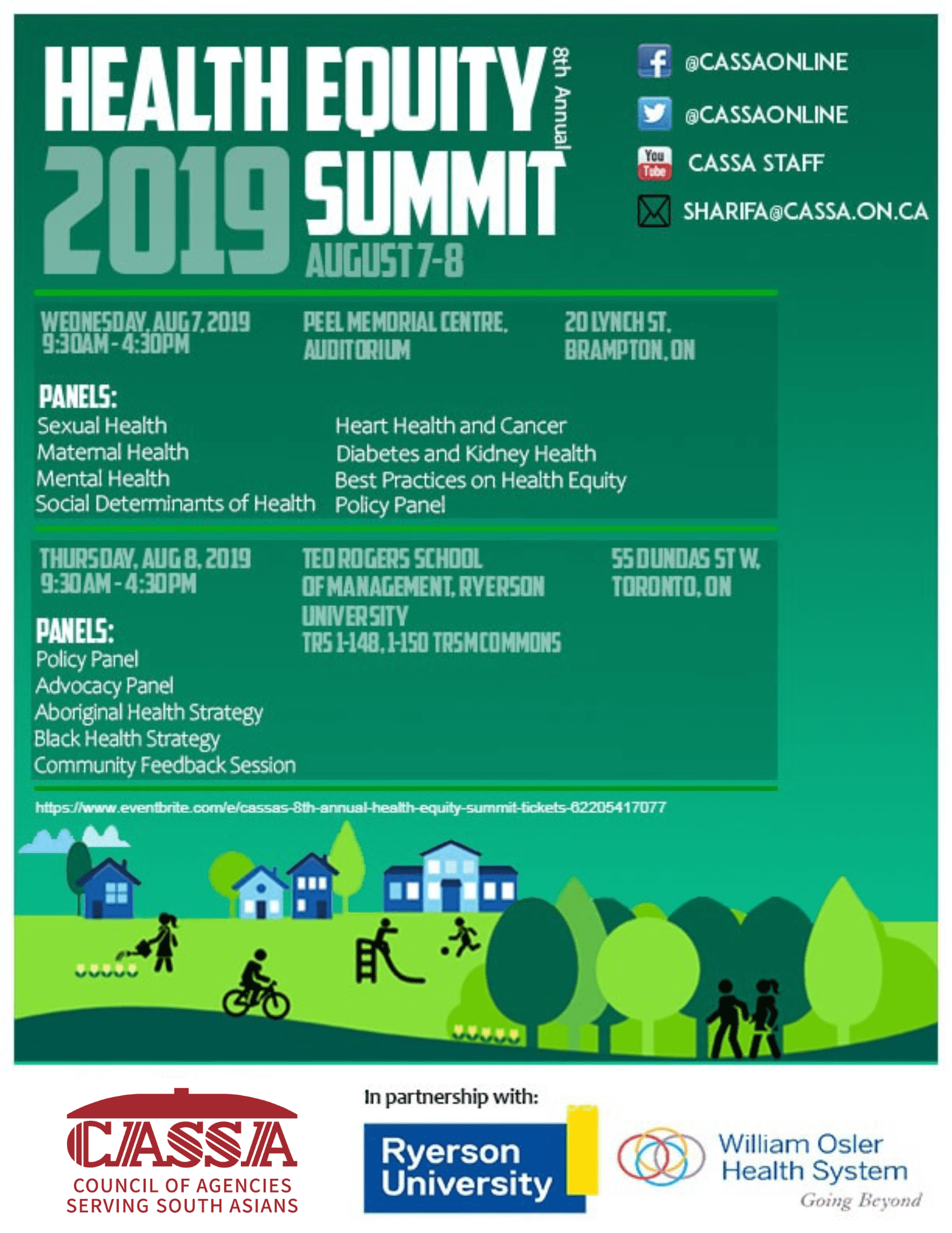The Annual Health Equity Summit, hosted by CASSA, is dedicated to addressing health disparities that disproportionately affect marginalized communities, with a particular focus on South Asian and other racialized groups. This highly anticipated event serves as a platform for key stakeholders, including experts, community leaders, policymakers, healthcare professionals, and advocates, to come together and collectively work towards achieving health equity.
The Summit explores a diverse range of pressing health topics, covering areas such as chronic diseases, mental health & addiction, sexual health, social determinants of health (SDoH), policy-making, advocacy, and best practices. These comprehensive discussions shed light on the underlying causes of health disparities and facilitate the development of effective strategies to address them.
Characterized by vibrant exchanges of knowledge, experiences, and ideas, the Summit encourages participants to share their expertise and insights to drive positive change. It creates a unique space for collaboration, encouraging stakeholders to identify and address the complex societal, economic, and cultural factors that contribute to health inequalities.
Through open dialogue, impactful presentations, interactive workshops, and networking, the Annual Health Equity Summit empowers individuals and communities. The Summit creates a transformative environment where diverse voices are heard, collective wisdom is harnessed, and equity-focused strategies are conceptualized. It serves as a catalyst for mobilizing efforts to achieve health equity, ensuring equitable and quality healthcare services for all.

Our Mission
Our mission is to promote health equity by addressing disparities and advocating for equitable healthcare for all individuals and communities. Grounded in a comprehensive analysis of the SDoH, we strive to create meaningful impact through collaborative strategies and community engagement.
Key elements of our mission include:
- Advocacy: We actively advocate for policies, initiatives, and practices that improve health outcomes and reduce disparities, with a particular focus on South Asian and other racialized communities.
- Accessible, Anti-oppressive, and Culturally Responsive Care: We work towards the development and implementation of healthcare strategies that are culturally and linguistically accessible, ensuring that individuals from diverse backgrounds can access quality care and services without barriers.
- Mental Health Support: We are dedicated to supporting the development of anti-oppressive mental health tools, services, and resources that are specifically tailored to meet the needs of South Asian communities, addressing the unique challenges they may face.
- Research and Disaggregated Data: We advocate for, support, secure, and disseminate research initiatives that highlight health disparities and promote race-based disaggregated data collection. By advancing knowledge in these areas, we strive to inform evidence-based solutions and policies.
- Empowerment and Well-being: Our mission includes championing healthcare services and practices that empower South Asians to enhance their health, well-being, and independence, enabling them to thrive and lead fulfilling lives.
12th Annual Health Equity Summit
South Asian Youth Perspective on Health Equity & Inclusion
In today’s rapidly evolving world, ensuring health equity and fostering inclusivity have become paramount, particularly when it comes to addressing the needs of youth aged 16-30. It is essential to recognize the unique experiences, challenges, and perspectives of diverse youth populations, including individuals with mental health and disabilities, homeless youth, and international students. By engaging in open and inclusive discussions that amplify their voices, we can work towards addressing the existing disparities in health support, promoting overall well-being, and ultimately building a more equitable and compassionate society that uplifts all members of the youth population.
The Summit was held on Tuesday, November 7, 2023 from 9:30 AM to 4:00 PM, and took place at the Centennial College Progress Campus Event Centre.
90
5
9
Speakers
Amrit Parhar
Acting Executive Director – Institute for Change Leaders
Read more
Amrit Parhar is the Acting Executive Director at the Institute for Change Leaders (ICL). She believes that through collective action we can make social change and build stronger communities, especially through the power of storytelling. She completed her Masters while working at ICL, focusing on issues related to the refugee and immigration system, early childhood education, mental health, anti-racism, gender-based violence and more. She is also a facilitator with the Institute for Change Leaders and has completed a certification for the Train the Trainer program through the Leading Change Network. Amrit holds a Bachelor’s degree in Criminology and a Master’s degree in Immigration and Settlement Studies at Toronto Metropolitan University.
Dr. Shivajan Sivapalan
Campus Clinic Physician – Campus Health And Wellness Centre for Durham College and Ontario Tech University Students
Read more
Dr. Sivapalan, a seasoned family physician with ten years of practice in the Greater Toronto Area, is dedicated to serving underrepresented communities. Leveraging his medical knowledge, clinical expertise, and a compassionate approach, he actively engages in applied research. His primary focus is the development of accessible tools and resources aimed at promoting health equity within these communities. As a campus clinic physician, Dr. Sivapalan is committed to enhancing support systems for international students. His ongoing research revolves around improving healthcare access for this demographic. Currently, he is engaged in a knowledge synthesis grant project aimed at gaining a deeper understanding of gender-based violence within the same community.
Sejal Katyal
Research Assistant – SAAAC Autism Centre
Read more
Sejal is a recent graduate from University of Guelph (B.A.H.), where she majored in Psychology and minored in Mathematical Sciences. Sejal hopes to pursue graduate studies in Clinical Psychology, with a focus on (1) evaluating emotional regulation in collectivistic societies, (2) evaluating the efficacy of current services and practices for racialized groups, and (3) evaluating the sociocultural impact on collectivistic families with children with autism. Currently, Sejal is working as an Instructor Therapist with Autism Behavioural Services Inc. to implement ABA therapy for children with ASD, as well as a research assistant for SAAAC Autism Centre.
Dr. Naomi Thulien
Investigator – MAP Centre for Urban Health Solutions
Read more
Dr. Naomi Thulien is a nurse practitioner and researcher committed to working with the community – including young people with lived expertise – to tackle the social and structural inequities that cause and perpetuate youth homelessness. Dr. Thulien is an investigator at MAP Centre for Urban Health Solutions, a research institute at St. Michael’s Hospital in Toronto focused on health equity. She is also an assistant professor (status only) at the University of Toronto Dalla Lana School of Public Health. In 2021, Dr. Thulien and her husband created Breakwater Foundation – a non-profit organization that provides rent subsidies, education bursaries, and primary health care to young women who have experienced homelessness.
Almeera Khalid
Public Policy Consultant
Read more
Almeera Khalid is a public policy consultant and holds a MSc in Forced Migration and International Development from the University of Oxford. Almeera is a tri-sector policy professional–with experience in civil society, the private sector and United Nations (UN) entities.
She specializes in migration, human rights, and gender, and has worked with UN agencies and research institutions. She is passionate about addressing social and political issues and is a strong advocate for gender justice. She is currently the head delegate representing Canadian youth at the World Bank and IMF Annual Meetings this year.
Eraj Waqar
Youth Leader/Facilitator/Mentor/Non-Profit Professional – United Way Greater Toronto
Read more
Eraj is a dynamic advocate and visionary leader with a strong commitment to promoting gender equality, youth empowerment, and social justice. With a solid foundation in community engagement and a deep understanding of the challenges faced by marginalized populations, Eraj brings a wealth of experience and expertise to the forefront of her mission. Her role as a South Asian Community Advisory Council Member at United Way of Peel Region reflects her commitment to addressing service gaps and strengthening her community’s needs. Through her diverse roles, Eraj has consistently demonstrated her ability to coordinate projects and engage youth in meaningful ways. Her intersectional approach, combined with her cultural competence and leadership skills, positions her as a force of positive change.
Fairuz Karim
Module Development Coordinator – Foundation for Medical Practice Education
Read more
Fairuz Karim is a recent graduate of the Translational Research Program from the University of Toronto. Fairuz immigrated to Canada from Bangladesh and grew up near Toronto. She is passionate about the intersectionality of community health, health equity, intersectionality, and youth engagement. Fairuz currently works as a Module Development Coordinator at the Foundation for Medical Practice Education at McMaster University, where she is involved in researching, developing, and writing evidence-based modules for family physicians. Fairuz has conducted research and worked with the Samuel Centre for Social Connectedness, Meal Exchange Canada, the McMaster Research Shop, and the Sickle Cell Awareness Group of Ontario. Fairuz’s work focuses predominantly on health and inclusion, drawing upon her lived experience to advocate for better health for all.
Manvir Bhangu
Executive Director & Founder – Laadliyan, Celebrating & Empowering Daughters
Read more
Manvir Bhangu is a dedicated community builder with over a decade of experience in gender equity, human rights, youth and community engagement, research, immigration, and settlement. She is the founder of Laadliyan (laad-lee-ah), a non-profit empowering South Asian daughters through education, engagement and awareness. Laadliyan has directly impacted over 12,000 girls and women through mentorship opportunities, access to menstrual hygiene, bridging intergenerational divides and much more. Manvir’s accomplishments include being named in Brampton’s Top 40 under 40 in 2018, winning the Women Working in Social Activism Award in 2022, and receiving the Young Woman of Distinction Award from YWCA Toronto in 2023.
Summayah Poonah
Director – Naseeha Mental Health
Read more
Summayah Poonah is the Director at Naseeha, an organization deeply committed to the empowerment of individuals through mental health education. At Naseeha, the focus is clear: to instill a profound understanding of one’s mental well-being and foster care systems that benefit not only the individual but also loved ones and the broader society. Driven by data and the identified needs from their community helpline, Summayah and her team engage with stakeholders to provide targeted educational solutions. Recognizing the unfortunate stigma surrounding mental health, often exacerbated by myths and conceptions, Summayah’s mission goes beyond mere awareness. She is at the forefront of countering that stigma, championing the creation and dissemination of evidence-based resources. In an age where mental well-being is often overlooked, she stands as a beacon of hope, ensuring that knowledge isn’t just acquired, but translated and disseminated to cultivate a more compassionate and understanding society. Comment end
Past Summits
Proceedings Report
Recordings
Flyers

